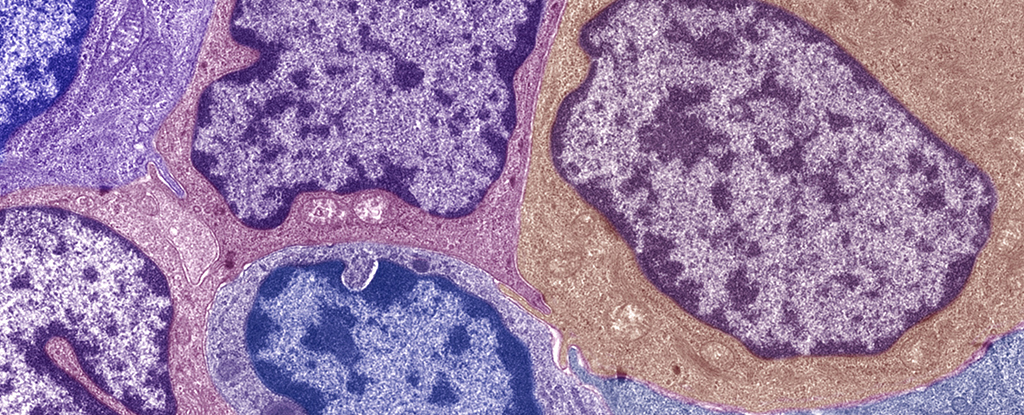A new study suggests it doesn’t take long for a diet free of animal products to slow biological aging rates, with the heart, liver, and hormonal and inflammatory systems all benefitting from the temporary change.
Led by a team from the Stanford University School of Medicine, the study analyzed the rate of DNA methylation; a kind of reversible genetic modification which is often used as an indicator of how quickly the body is wearing out.
Among a group of 21 pairs of identical twins, one of each pair adhered to a vegan diet over the course of eight weeks, while their twin’s diet included meat and dairy products. After that time, those on a vegan diet showed decreases in estimates of biological age.
“This study suggests that a short‑term vegan diet is associated with epigenetic age benefits and reduced calorie intake,” the researchers write in their published paper.
“The use of epigenetic biomarker proxies (EBPs) highlights their potential for assessing dietary impacts and facilitating personalized nutrition strategies for healthy aging.”
Comparatively less biological aging was observed in the heart and liver, as well as in tissues making up the hormonal, inflammatory, and metabolic systems, suggesting the body wasn’t aging quite as quickly on the vegan diet.
The non-vegan diet included 170-225 grams of meat, one egg, and one-and-a-half servings of dairy each day. In both groups, the participants ate prepared meals for the first four weeks, and then meals they made themselves based on nutritionist advice for the second four weeks, so both diets were considered healthy.
In addition to the differences in DNA markers, those on the vegan diet also lost an average of two kilograms more than those on an omnivorous diet, making it difficult to rule out the influence of caloric restriction or weight-loss on observed biological aging.
There are some caveats to bear in mind: the study involves a relatively small sample size, and doesn’t take into account the risk of nutrient deficiency that can come along with a plant-based diet over the longer term. This particular study was also partly financed by Beyond Meat, a company producing plant-based alternatives to meat, as well as the Vogt Foundation, which invests in projects to protect animals and promote plant-based products.
The researchers themselves admit the relationship between diet differences and biological aging remains unclear. As yet, there’s no evidence that vegans live longer.
Still, it’s an interesting insight into how quickly changes in a diet can lead to positive impacts in the body. The research follows on from a similar study last year, which found that eight weeks of a vegan diet could lead to benefits in cardiovascular health.
“Future research should explore the long‑term effects of vegan diets on epigenetic health and overall wellbeing, considering the importance of proper nutrient supplementation,” write the researchers.
The research has been published in BMC Medicine.





